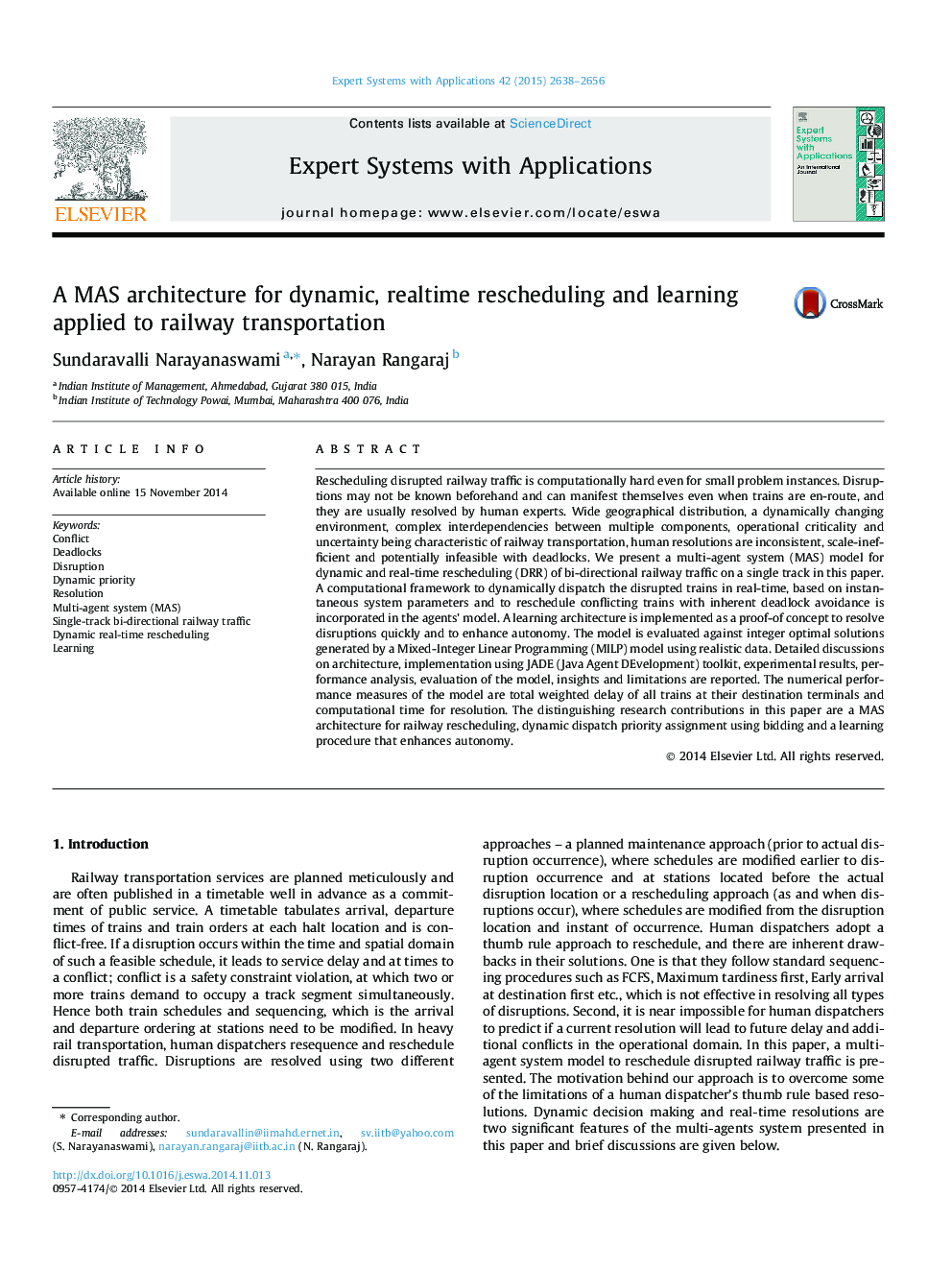| کد مقاله | کد نشریه | سال انتشار | مقاله انگلیسی | نسخه تمام متن |
|---|---|---|---|---|
| 382860 | 660794 | 2015 | 19 صفحه PDF | دانلود رایگان |

• Multi-agent model to reschedule disrupted railway traffic on a single track.
• Look-ahead dynamic ranking algorithm for dispatch priority decisions by bidding.
• Objective function is total delay minimization.
• Learning is incorporated as a proof-of concept to enhance rescheduling autonomy.
• Evaluation with real-life data and other resolution procedures.
Rescheduling disrupted railway traffic is computationally hard even for small problem instances. Disruptions may not be known beforehand and can manifest themselves even when trains are en-route, and they are usually resolved by human experts. Wide geographical distribution, a dynamically changing environment, complex interdependencies between multiple components, operational criticality and uncertainty being characteristic of railway transportation, human resolutions are inconsistent, scale-inefficient and potentially infeasible with deadlocks. We present a multi-agent system (MAS) model for dynamic and real-time rescheduling (DRR) of bi-directional railway traffic on a single track in this paper. A computational framework to dynamically dispatch the disrupted trains in real-time, based on instantaneous system parameters and to reschedule conflicting trains with inherent deadlock avoidance is incorporated in the agents’ model. A learning architecture is implemented as a proof-of concept to resolve disruptions quickly and to enhance autonomy. The model is evaluated against integer optimal solutions generated by a Mixed-Integer Linear Programming (MILP) model using realistic data. Detailed discussions on architecture, implementation using JADE (Java Agent DEvelopment) toolkit, experimental results, performance analysis, evaluation of the model, insights and limitations are reported. The numerical performance measures of the model are total weighted delay of all trains at their destination terminals and computational time for resolution. The distinguishing research contributions in this paper are a MAS architecture for railway rescheduling, dynamic dispatch priority assignment using bidding and a learning procedure that enhances autonomy.
Journal: Expert Systems with Applications - Volume 42, Issue 5, 1 April 2015, Pages 2638–2656